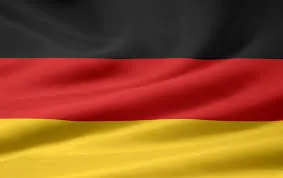German Bundesrat approves ratification of Unified Patent Court Agreement
December 18, 2020
The German Bundesrat approved the Unified Patent Court Agreement and its Protocol on Provisional Application (PPA) earlier today, three weeks after its approval in the Bundestag. To complete the German ratification procedure, the bills will have to be signed by the government and Bundespräsident and published in the Federal Law Gazette.

In 2017, the FCC requested the German Bundespräsident not to sign the UPCA ratification bills which had just passed through parliament at the time, as long as it had not ruled on Stjerna’s complaint. It is not clear whether a similar request from the FCC will follow automatically when new complaints are filed.
If no complaints are filed, two more countries will have to ratify (or otherwise consent to) the PPA for the provisional application phase to come into force. In that case, the provisional application phase could start in the first quarter of 2021 and the UPC could open late 2021 or at the start over 2022.
You may also like














Amazing pace
I am always astonished afresh how powerful the UPC lobby is. They can push governments and parliaments wherever they want. And all of this just to fill a few pockets. Amazing. Poor old Europe, your SMEs are going to bleed ....
Article 24 Vienna Convention, anyone?
Of “If no complaints are filed, two more countries will have to ratify (or otherwise consent to) the PPA for the provisional application phase to come into force”, what does the Vienna Convention on Treaties say? Vienna Convention on Treaties, Article 24, Entry into force says: 24.1. A treaty enters into force in such manner and upon such date as it may provide or as the negotiating States may agree. • But, the requirement for UK ratification, that the UPC Agreement provides, has not been satisfied. 24.2. Failing any such provision or agreement, a treaty enters into force as soon as consent to be bound by the treaty has been established for all the negotiating States. • But, all the negotiating states, which include the UK, have not given such consent. • Could the UPC Agreement be amended to allow entry into force without UK ratification? Article 39 allows amendment? Article 39: A treaty may be amended by agreement between the parties. The rules laid down in Part II apply to such an agreement except insofar as the treaty may otherwise provide. • It requires agreement between the parties. That includes the UK. • Is there such an agreement?
Attentive Observer
The UPC lobbyists might have won a battle, but certainly not the war. Why do you not believe, the UPC is not good for European SMEs? You are not receptive to lobbyism, that’s your problem. In the accompanying note to the new ratification bill, the German Ministry of Justice went as far as to claim that it will be cheaper for a SME to go before the UPC than before a national court in case of patent litigation. Hard to believe, but true. How can civil servants in charge of the administration of justice can write such a non-sense? At least it is clear who held the hand of those civil servants. The writers did not even realise how ridiculous this stance is. Why does Germany need an international, rather expensive, court in order to give SMEs cheaper access to justice in cases of patent litigation? I fail to understand, but I am also not receptive to lobbyism. It also shows that the MPs have ratified with both eyes shut. As far as the VCLT is concerned, not only Art 24 VCLT could apply. It is also necessary to look at Art 31 and 32 VCLT. As far as Art 24VCLT is concerned, UK has only send in a “verbal note” explaining that it will not participate to the UP/UPC system. I am not a specialist of international public law, but I do not equate “not participating” with a proper withdrawal of the ratification. As 31 and 32 VCLT goes about interpretation of a treaty. Art 31VCLT was mentioned in the explanatory note for the new ratification bill. Art 31(1) states: "A treaty shall be interpreted in good faith in accordance with the ordinary meaning to be given to the terms of the treaty in their context and in the light of its object and purpose". When interpreted in good faith Art 7(2) UPCA makes it clear that a section of the Central (?) Division will be located in London. There is no need to interpret this text, it is crystal clear. According to Art 31(2,a) the interpretation of a treaty shall comprise, in addition to the text, including its preamble and annexes any agreement relating to the treaty which was made between all the parties in connection with the conclusion of the treaty. Art 31(3,a) adds that “There shall be taken into account, together with the context any subsequent agreement between the parties regarding the interpretation of the treaty or the application of its provisions”. Where is the agreement of the parties to the UPC accepting, at least provisionally, that the duties devolved to the London Section will be distributed between Paris and Munich? Where is the agreement that it can be decided under Art 87(2) that the location of the London Section can be decided when the UPCA will be revised by its Administrative Committee? It is also difficult to see how the transfer of the London Section is to bring the UPCA into line with an international treaty relating to patents or Union law. Art 87(2) only applies after all contracting states have individually ratified international treaties relating to patents or amendments to those. Adaptation of the UPCA to those new treaties, or their amendment, does not need a separate new ratification of the UPCA. Art 87(2) does not allow a different interpretation under the VCLT. One example: some amendments of the EPC which could have an influence on the UPCA could be incorporated into the latter after ratification by all the contracting states of the amended EPC. No need to have a new ratification of the UPCA. No less, but no more. Art 32 VCLT specifies that “Recourse may be had to supplementary means of interpretation, including the preparatory work of the treaty and the circumstances of its conclusion, in order to confirm the meaning resulting from the application of Art 31, or to determine the meaning when the interpretation according to Art 31: (a) leaves the meaning ambiguous or obscure; or (b) leads to a result which is manifestly absurd or unreasonable. The text of Art 7(2) UPCA is anything but ambiguous or obscure and does not lead to a result which is manifestly absurd or unreasonable. To me it is rather the interpretation of the UPC lobbyists who held the hand of civil servants in the German Ministry of Justice which is manifestly absurd or unreasonable. One well known French lawyer and staunch UPC lobbyist went as far to claim that Brexit was a gift which allowed to shift the duties of the London Section to Paris. German lawyers and UPC lobbyist did not agree and in the explanation note Munich appeared next to Paris….. Rather than to complain about software patents, a new complaint to the German Federal Constitutional Court could be along the line that the entry into force of the UPCA under the interpretation of the German Ministry of Justice could lead to a denial of justice. By merely transferring the duties of the London Section to Paris or Munich would deprive a German citizen to its right to have its case decided by the “appropriate” judge. The notion of the “appropriate” judge is very important in the recent legal German tradition. To sum it up, which user of the European patent system will want to put even a portion of one of its European Patent to such a wobbly and uncertain system? Patents are for business and not to fill the pockets of lawyers. But should you put one question to two lawyers and you will get three opinions! That is not what we need for the European patent system!